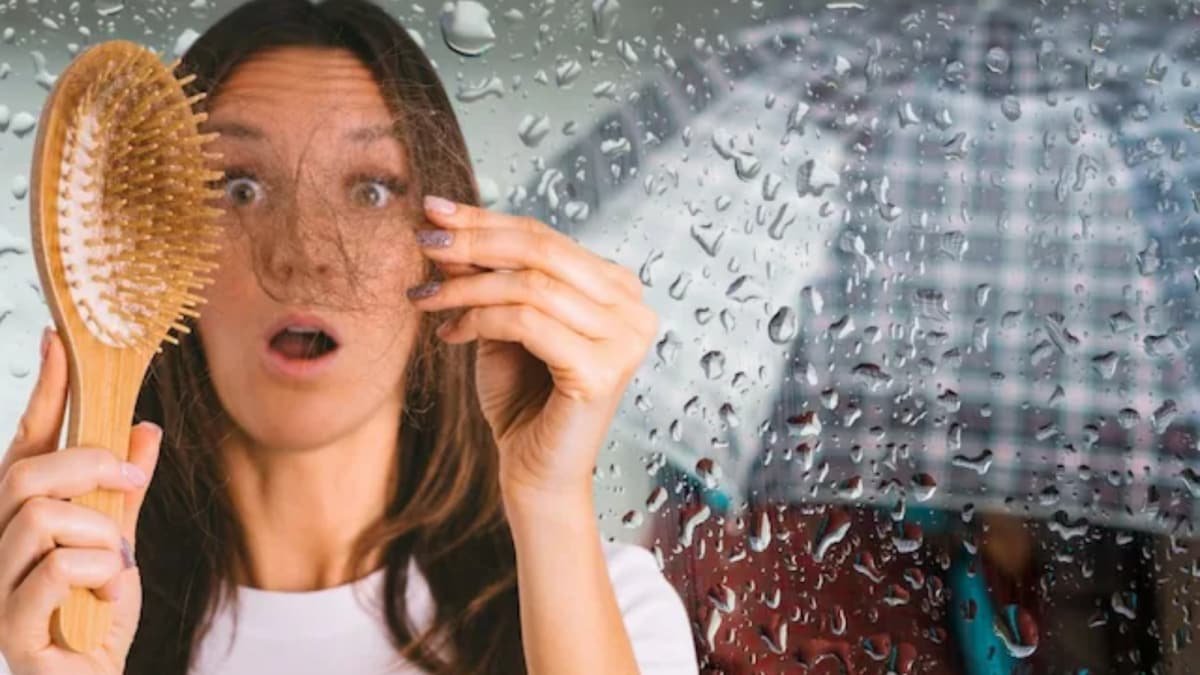Last Updated:July 08, 2025, 13:25 IST
During summer, most hair strands enter the telogen or resting phase. As the monsoon sets in, the hair begins to shed more noticeably, making seasonal hair fall more evident
As soon as the rains begin, a large number of individuals start noticing increased hair shedding. (News18 Hindi)
Hair fall is a common concern during the monsoon season, affecting many people across age groups. As soon as the rains begin, a large number of individuals start noticing increased hair shedding.
According to nutritionist Lavneet Batra, humidity isn’t the only culprit, several internal and external factors contribute to hair fall during the rainy season.
Why Hair Fall Increases During Monsoon
Changes in the Hair Growth Cycle: During summer, most hair strands enter the telogen or resting phase. As the monsoon sets in, the hair begins to shed more noticeably, making seasonal hair fall more evident.
Excessive Humidity: The high moisture content in the air causes hair cuticles to swell and weaken. This makes them prone to breakage. Continuous exposure to humidity can damage the outer layer of the hair, leading to dullness and hair fall.
Infections and Fever: People are more prone to illnesses like cold, flu, and viral infections during monsoon. Post-illness inflammation can trigger a condition known as telogen effluvium, a form of temporary hair loss. This often starts a few weeks after recovery, when the body begins to reset itself.
Foods That Help Control Hair Fall in Monsoon
Incorporating certain foods into your diet during the rainy season can help reduce hair fall and strengthen roots. These ingredients nourish the scalp and support hair follicle health.
Orange and Pumpkin Seeds: Both are rich in nutrients that block DHT, a hormone linked to hair loss. These seeds also help control scalp oiliness and prevent excess stickiness, which is common in humid weather.
Nannari (Indian Sarsaparilla): Used in Ayurveda for its cooling properties, Nannari helps soothe internal body heat. Excess heat can inflame the scalp and weaken follicles, triggering seasonal hair fall. A drink made from this herb can offer a natural cooling effect.
Black Sesame Seeds: Rich in calcium, zinc, and healthy fats, black sesame supports follicle strength. Including sesame in the diet during monsoon helps maintain the hair’s structure and resilience.
Olive Seeds: Known to improve iron levels and oxygenation, olive seeds can aid in recovery from post-fever hair loss. They boost blood flow to the scalp, supporting healthy regrowth.
Dried Ginger: Monsoon often brings digestive issues. Dried ginger helps reduce intestinal inflammation, improves blood circulation, and ensures better nutrient delivery to the scalp—essential for healthy hair.
- First Published:
#Hair #Fall #Increases #Monsoon #Start #Eating #Foods #Control #Lifestyle #News



